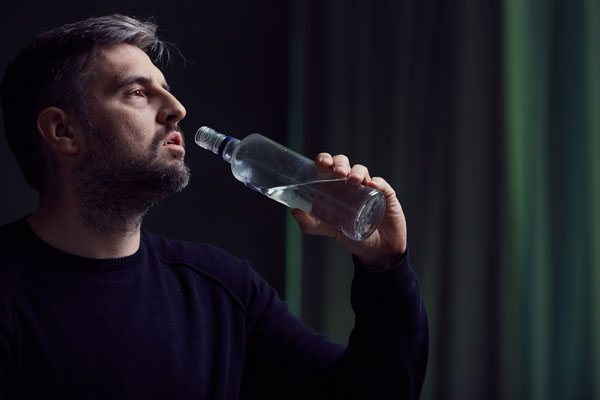Addiction Treatment
Starting Alcohol Treatment:
If you are interested in learning more about medication-assisted treatment options for alcohol use disorder, call us at 1-888-388-7226 to book an appointment. Virtual appointments through video are available the same day, and we also welcome new patients on a walk-in basis. Our clinic hours and locations are found here.
Our services are covered 100% by OHIP. Please bring your Health Card and a list of any current medications to your first appointment.
Your First Appointment:
Your first appointment will last up to one hour and will include completing some forms regarding your medical history, providing a urine sample (generally not required during the pandemic), and having an assessment by a physician. A comprehensive care plan will be developed, which includes a discussion about pharmacological treatment options as well as counseling options.
What is Alcohol Use Disorder?
Alcohol Use Disorder, similarly to other substance use disorders, is a chronic condition that affects the brain’s reward system and related circuitry. It stems from various factors,
How do I know if I have problematic alcohol use?
If you have answered yes to at least two of the following questions, it is recommended that you consider seeking help for problematic alcohol use:
- Do you have a tendency to drink more alcohol than intended?
- Do you have frequent or continuous cravings for alcohol?
- Have you experienced unsuccessful attempts to cut down or stop alcohol use?
- Do you spend a lot of time using alcohol and/or recovering from its effects?
- When you stop or reduce using alcohol, do you find yourself experiencing alcohol withdrawal symptoms, such as shakiness, restlessness, sleeping difficulties, irritability, or seizures?
- Have you found yourself drinking more alcohol to get the same effects as before?
- Do you drink alcohol compulsively?
- Do you continue to consume alcohol, despite
harmful effects of alcohol use on your health, finances, work, school, family, or social life? - Has alcohol use caused you to give up or reduce activities that were interesting and/or important to you?
Alcohol Treatment Options:
Alcohol addiction has historically been treated through counseling or support groups, which are certainly recommended and can help many people. Unknown to most people, and vastly underutilized by the medical community, many evidence-based medications do exist which can effectively treat alcohol use disorder. This includes anti-craving medications which can help people reduce or stop their consumption of alcohol. After a thorough evaluation of your medical and substance use history, appropriate, individualized medication treatment options will be discussed with you at your first visit.
Research has shown that pharmacological treatment is most effective when combined with counseling and/or group therapies. In addition to addiction counseling, the following evidence-based pharmacological treatment options have shown good results (most commonly used medications are listed):
- Naltrexone (ReVia) decreases the pleasurable effects of alcohol which helps people reduce the amount of alcohol consumed in a particular
sitting . It has been shown to reducecraving for alcohol, with fewer drinking days and less alcohol consumed. It is taken once per day.
- Acamprosate (Campral) is typically started once you are able to abstain from alcohol use for
few days. Due toa chronic alcohol use, a chemical imbalance develops in the brain (involving brain neurotransmitters – specifically the GABA-glutamate system). This imbalance makes one feel uncomfortable and contributes to cravings and urges to return to alcohol use. Acamprosate regulates this GABA-Glutamate imbalance in abstinence, and helps prevents relapse. It is taken three times per day.
- Disulfiram (Antabuse) was the first medication available for alcohol use
disorder, and acts as a deterrent of alcohol consumption. It blocks the metabolism of alcohol and causes accumulation of its toxic metabolite known as acetaldehyde. Even witha minimal consumption of alcohol, it can make one feel violently sick. Disulfiram is taken once per day and has been shown to work best when taken in a supervised manner for very motivated individuals. This option is not for everyone, but only for those who are highly committed to complete abstinence from alcohol.
Other evidence-based pharmacological treatment options include the ‘off-label’ use of gabapentin, topiramate, baclofen, and ondansetron. The various medications listed above may be prescribed
How long will I have to be on the pharmacological treatment?
There is no data that shows a timeline that works best for everyone. The decision to stop treatment is patient-driven. It could be the case that longer treatment may reduce the chances of relapse, so we recommend treatment to be stopped once all other areas of life (work, family, social life) are stable with addiction counseling and/or mutual group supports are in place.
What about if I am in acute alcohol withdrawal?
Please note that we do not treat acute alcohol withdrawal which, depending on the individual, can involve significant risks such as seizures and possible death. Individuals concerned about acute alcohol withdrawal are advised to visit their nearest emergency department for management.


Head Office: 1540 Cornwall Rd, Unit 102
Oakville, Ontario, L6J 7W5
